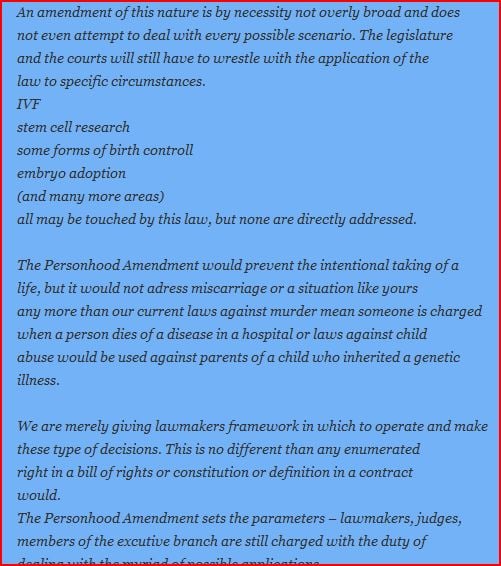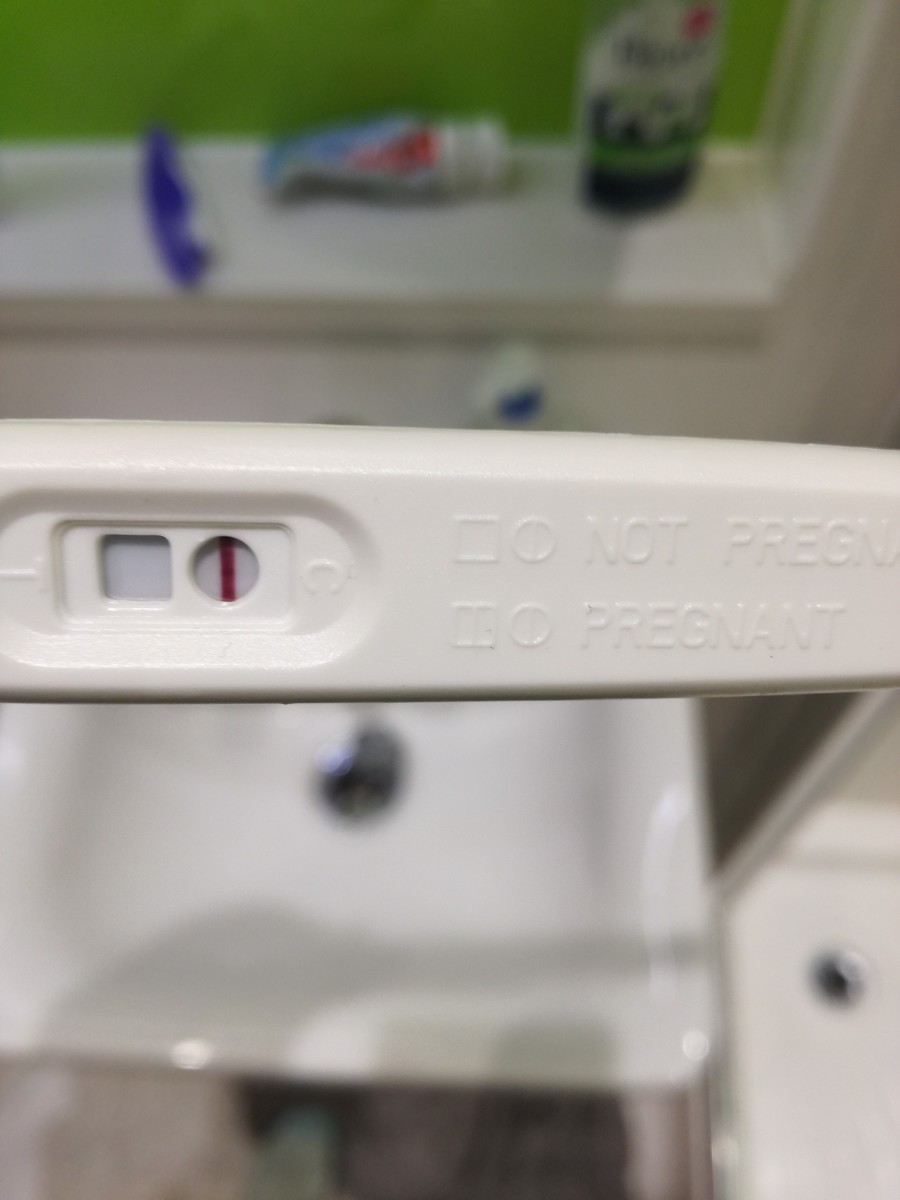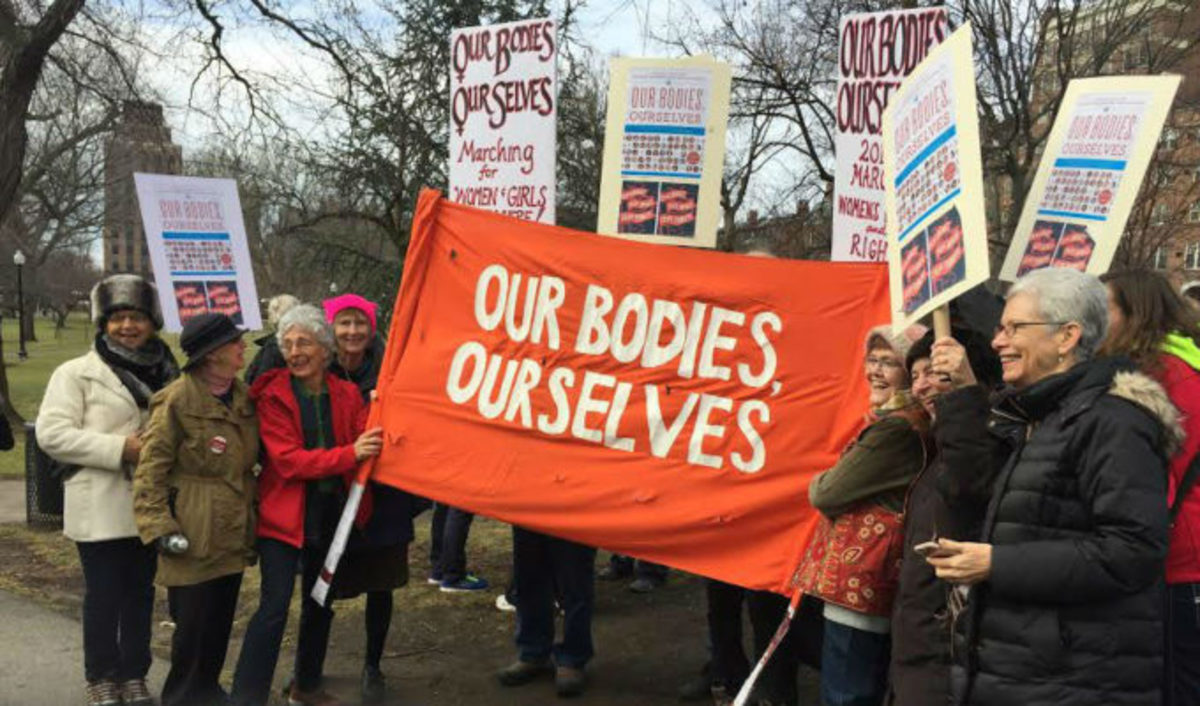Why the Personhood Amendment is Too Extreme
The Pro-Life movement has taken front and center stage in the last few years, especially since the republicans currently outnumber the democrats in the House and have the ability to control what legislation is introduced and discussed.
Currently (January 2012), the GOP has about 20 pieces of legislation pending in Congress that relates to abortion in some manner—from requiring a sonogram prior to an abortion to preventing insurance companies from offering abortion coverage, even for people who pay cash for their own, individual policies.
List of Current Anti-Abortion Legislation in Congress
Banning Abortion at all Costs
For a number of decades, pro-life groups have attempted to have the Roe v Wade decision either overturned or have lobbied for legislation that would require Roe v Wade to be re-argued in the hopes of banning abortion.
The problem with this is that much of the legislation introduced comes at the expense of women and is anything but pro-life. Regardless of how you feel about abortion, right-to-life groups have become so extreme that women’s rights and their health and safety are being threatened and sacrificed at every turn of the head.
One such piece of legislation is the Personhood Amendment and recently rejected in Mississippi by more than 55% of the voters in November of 2011. However, this doesn’t mean that the Personhood Amendment won’t come into play again. Personhood USA is the latest right-to-life group with plans to hit every state
What is the Personhood Amendment?
The Personhood Amendment simply defines a person as a human being the moment fertilization occurs (not when the embryo attaches to the uterus).
Although the definition seems simple enough, the ramifications of the definition, if accepted, would threaten not just the legality of abortion, but limit birth control options and birth control availability, impact infertility treatments, and threaten medical treatment for pregnant women in life-threatening situations.
These issues are explained, and quite transparently, on Personhood Mississippi’s website, the organization that lobbied for the Personhood Amendment (via PersonhoodUSA) in Mississippi.
While Personhood Mississippi does acknowledge that the amendment would impact birth control, IVF procedures, embryo adoption, and much more, Personhood Mississippi is not sure, exactly, how, indicating that it would be up to lawmakers and judges to make these determinations. The primary goal of PersonhoodUSA is to find a way to challenge Roe v Wade, no matter the consequences.
It doesn't matter what or how Personhood impacts, as long as it sets up a challenge to Roe v Wade

How the Personhood Amendment Impacts Birth Control
Since there are several methods of birth control that prevent a fertilized egg from attaching itself to the uterus (like the IUD), it is widely believed that if the Personhood Amendment were to pass, these types of contraception devices would be illegal. PersonhoodUSA does not deny this.
The same could be said for birth control pills. Although birth control pills do prevent an egg from being released from the ovaries, some birth control pills also thin the lining of the uterus. This, theoretically—if an egg was released and fertilized—prevents a fertilized egg from attaching to the uterus. PersonhoodUSA does not deny that these types of birth control should be banned.
How the Personhood Amendment Impacts Infertility Treatments
IVF can cost as much as $25,000—for a complete round. One of the ways to reduce costs for a couple attempting to conceive through IVF is to freeze embryos that aren’t used. This is done for several reasons: couples have the opportunity to retry after failed attempts with a significant savings since the entire IVF process does not have to be repeated; couples are able to have more children without having to pay for another complete round of IVF; embryos can be donated to couples who are in need of eggs.
The Personhood Amendment could eliminate the opportunity for couples to freeze embryos since, theoritically speaking, people wouldn't be allowed to be frozen. This results with an egg retrieval for only one or two eggs, hoping fertilization is successful, hoping that at least one fertilized egg develops to the blastocyst stage, and hoping the transfer results with a successful pregnancy. This would not not only substantially decrease success rates, but it would eliminate any cost-savings for future transfers and eliminate embryo donation.
How the Personhood Amendment Threatens Women’s Health and Safety
A well-known republican, Rick Santorum, who is currently running for President of the United States, is featured on PersonhoodUSA’s website. Rick Santorum, former Republican Senator of Pennsylvania, is a supporter of the Personhood Amendment and has gone so far as to sign a pledge supporting the Personhood Amendment.
In 1996, Rick and his wife, Karen, were informed that their unborn child had a birth defect. In a NY Times article, The Believer, MICHAEL SOKOLOVE writes:
The childbirth in 1996 was a source of terrible heartbreak -- the couple were told by doctors early in the pregnancy that the baby Karen was carrying had a fatal defect and would survive only for a short time outside the womb. According to Karen Santorum's book, ''Letters to Gabriel: The True Story of Gabriel Michael Santorum,'' she later developed a life-threatening intrauterine infection and a fever that reached nearly 105 degrees. She went into labor when she was 20 weeks pregnant. After resisting at first, she allowed doctors to give her the drug Pitocin to speed the birth. Gabriel lived just two hours.
Rick Santorum and his wife, Karen, with all due respect, are right-to-life extremists, going so far as to oppose any form of birth control. Karen delayed giving birth as long as she could, risking her own life, until finally giving in and consenting to drugs in order to speed the delivery of the birth.
If the Personhood Amendment passes, unlike Karen Santorum—who is a right-to-life extremist and who caved despite having such extreme views—another woman, facing these same set of circumstances, may not have the opportunity to make this same choice…to save her own life.
Rick Santorum signed the Personhood pledge AFTER his wife was allowed to make this choice along with his consent, but Rick Santorum and others who support the Personhood Amendment do not want women to be able to make this same choice under these same set of circumstances or any similar circumstances.
- The Believer - New York Times
Has Senator Rick Santorum found a way to turn blue states red?
The Personhood Amendment and the supporters are extremists that will go to any and all costs—not to ban abortion—but just to have the chance at presenting a new argument to the Roe v Wade decision.
None of this seems pro-life to me—not at all.
© 2012 Jenifer L








